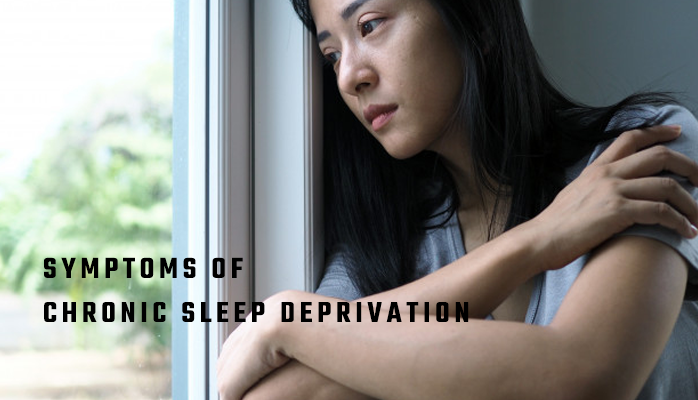Chronic sleep deprivation is a serious condition that occurs when a person consistently lacks sufficient sleep over a prolonged period. It can have detrimental effects on both physical and mental health, as well as overall performance in various aspects of life. The causes of sleep deprivation can vary, but the result is the same – a persistent lack of sleep that can lead to serious consequences. It is crucial to identify and address chronic sleep deprivation to ensure optimal well-being and functioning. Are you getting enough sleep?
Unlike acute sleep deprivation, which typically lasts for a short period, chronic sleep deprivation can persist for weeks, months, or even years. While acute sleep deprivation often has a known cause, chronic sleep deprivation may or may not have an identifiable reason. However, it commonly involves consistently getting less sleep than necessary on most days, leading to a cycle of inadequate sleep followed by periods of excessive sleep and exhaustion.
For adults, it is recommended to have around 7-9 hours of sleep per day. Research has consistently shown that getting less than 7 hours of sleep per day, including naps, can have negative effects on almost everyone's well-being.
The severity of chronic sleep deprivation can vary from moderate to severe, depending on the extent of sleep deficit. To learn more about the symptoms associated with chronic sleep deprivation, continue reading.
What are the Symptoms of Chronic Sleep Deprivation?
Symptoms of chronic sleep deprivation can manifest in subtle or noticeable ways, depending on the severity of the condition and the individual's personality. However, these symptoms are often evident to the sleep-deprived person and their loved ones. Here are some common signs to look out for:
Decreased Performance
Individuals experiencing chronic sleep deprivation typically underperform in various aspects of their lives. They may feel "off," like a different person, or not like themselves at all. This is because chronic sleep deprivation alters behavior to the point where it is markedly different from how one behaves when well-rested.
Fatigue and Exhaustion
Fatigue and exhaustion are the most apparent indications of chronic sleep deprivation. These may manifest as:
- Persistent daytime fatigue and lethargy
- Difficulty staying awake while driving
- Frequent headaches
- Inability to engage in physical activities or sports
- Sudden sleep attacks during the day, with an overwhelming desire to sleep and difficulty keeping one's eyes open
- Clinical exhaustion, where the body begins to break down (e.g., hair loss)
Cognitive Dysfunction
Chronic sleep deprivation can significantly impair cognitive function, leading to:
- Chronic brain fog
- Difficulty concentrating or staying focused on tasks
- Trouble learning new information
- Problems with memory, including forgetting simple things
- Slower, less efficient cognitive performance, particularly at work
Teachers and employers may notice cognitive dysfunction if it becomes severe enough.
Emotional Dysfunction
Quality sleep plays a crucial role in emotional regulation. Chronic sleep deprivation can disrupt this process and contribute to:
- Depression
- Chronic anxiety
- Chronic irritability and anger issues
- Inability to manage and respond healthily to stress
- Other mood disorders
Sexual Problems
Both physical and emotional energy are vital for maintaining a healthy libido. Sleep deprivation can deplete this energy, resulting in reduced sex drive and sexual difficulties for both men and women.
For men, chronic sleep deprivation can have even greater implications for their sex lives. Sleep is essential for testosterone replenishment, and low testosterone levels increase the risk of erectile dysfunction and diminished sex drive.
Several studies have consistently shown that sleep problems often lead to sexual problems in men. For instance, one study found that men who slept four hours or less had half as much testosterone as those who slept eight or more hours. Other studies have also reported a significant correlation between sleep apnea and erectile dysfunction, with rates ranging from 40% to 69%.
It's crucial to recognize these symptoms and address chronic sleep deprivation promptly.
What are the Causes of Chronic Sleep Deprivation?
Chronic sleep deprivation can be attributed to several factors, all of which can have a significant impact on our ability to get enough rest. Here are some common causes:
Sleep disorders: Conditions like insomnia, obstructive sleep apnea, and parasomnia can directly interfere with our ability to achieve sufficient sleep. These disorders often lead to chronic sleep deprivation, leaving individuals feeling exhausted and drained.
Medical conditions and diseases: Certain medical conditions and diseases can contribute to sleep deprivation, either directly or as a result of the medications used to treat them. It is crucial to address these underlying health issues to improve sleep quality.
Chronic pain: Living with chronic pain can make it incredibly challenging to get a good night's sleep. The discomfort and restlessness caused by pain can lead to frequent awakenings and disrupted sleep patterns, resulting in chronic sleep deprivation.
Life stressors and lifestyles: High-stress jobs, demanding schedules, shift work, and ongoing life stressors can significantly impact our ability to get the sleep we need. These factors can create a cycle of sleeplessness and exhaustion, leading to chronic sleep deprivation.
Natural changes: As we age, our sleep patterns naturally change. Older adults often experience more fragmented sleep, lighter sleep, and frequent awakenings, all of which can contribute to chronic sleep deprivation.
Extreme lighting conditions: In certain regions, such as Alaska, the extreme lighting conditions can disrupt sleep patterns and lead to chronic sleep deprivation. The constant sunlight or extended periods of darkness can interfere with our body's natural sleep-wake cycle, making it difficult to establish a regular sleep routine.
Identifying the cause of chronic sleep deprivation is crucial in finding effective treatment strategies. By addressing the underlying factors contributing to sleep deprivation, individuals can take steps towards improving their sleep quality and overall well-being. If you or someone you know struggles with sleep deprivation, please reach out to our facility to begin working towards improvement.

